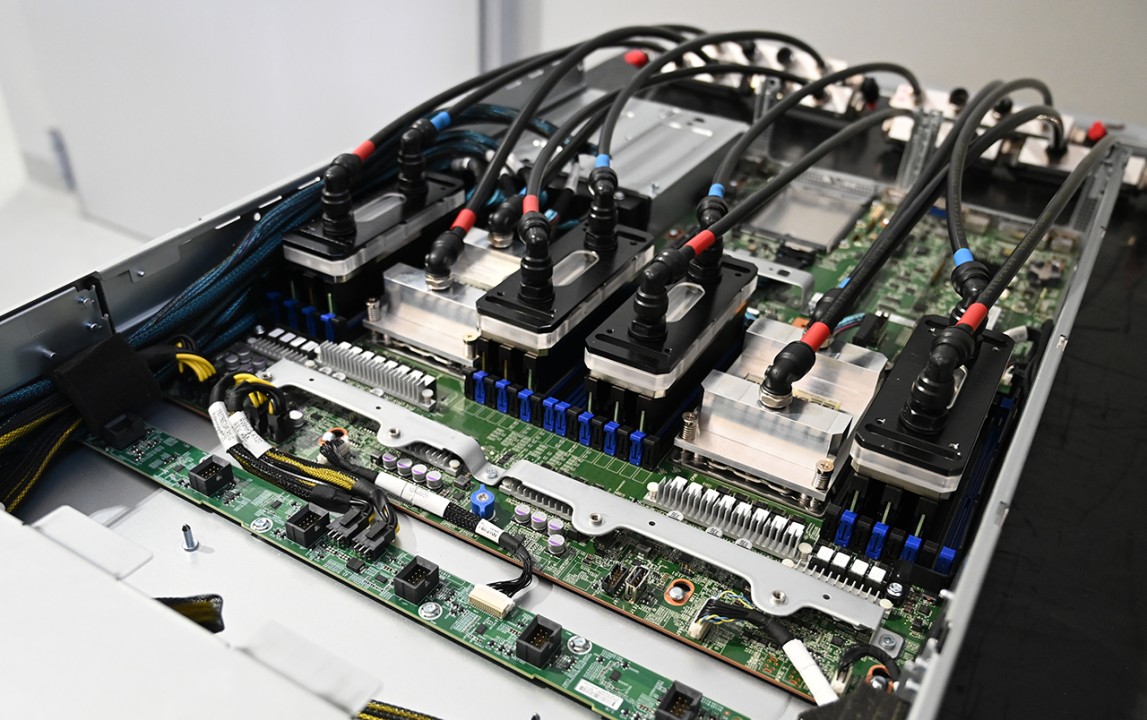E4 Computer Engineering combines HPC innovation with energy efficiency
At ISC in Hamburg, the Italian company unveiled a new cooling system that ensures greater efficiency and effectiveness of HPC systems

In past years, E4 Computer Engineering Spa has brought innovative solutions and technologically advanced prototypes to ISC. This year, E4 premiered the Textarossa liquid-cooled server prototype, featuring an innovative two-phase cooling system that enables HPC systems to reach new levels of performance and energy efficiency, solving the historical dilemma of thermal management.
Temperature is a critical issue in HPC centers that host many computing elements, because a significant portion of the consumed energy is used by the cooling system, which directly impacts on systems' reliability and energy efficiency.
The approach of the Textarossa project combines an advanced two-stage cooling device with multi-level thermal control strategies to effectively address thermal challenges at both the system and node levels. The goal of the European Textarossa project is to contribute to the goals outlined in the EuroHPC Strategic Research and Innovation Agenda and the ETP4HPC Strategic Research Agenda.
"E4 has always played a role of excellence in the HPC world, with projects of international importance," explains Cosimo Gianfreda, CEO of E4 Computer Engineering. "In Textarossa we have combined our advanced skills with the technological partnerships we have forged over the years, to create a system that opens up unprecedented perspectives to the world of research and industry."
To meet the needs of large-scale HPC centers, achieving high efficiency while staying within power and energy limits is a significant challenge. Researchers must consider several factors within the HPC hardware/software stack, including the use of specialized and highly efficient hardware accelerators, effective management of software resources, and advanced cooling systems.
The TEXTAROSSA project addresses these challenges by prioritizing thermal control, energy efficiency, performance, and seamless integration of new accelerators based on reconfigurability principles. The development of a new two-stage cooling system aims to provide an efficient and cost-effective solution to meet the requirements of the current generation and prepare the appropriate technologies for the next generation of HPC infrastructure.
According to Dell'Oro Group, the use of liquid cooling in data center thermal management represents a particularly significant growth opportunity in the evolution of physical data center infrastructure, which is expected to grow dramatically - up to $32 billion by the end of 2026.
Related news
Last News
RSA at Cybertech Europe 2024
Alaa Abdul Nabi, Vice President, Sales International at RSA presents the innovations the vendor brings to Cybertech as part of a passwordless vision for…
Italian Security Awards 2024: G11 Media honours the best of Italian cybersecurity
G11 Media's SecurityOpenLab magazine rewards excellence in cybersecurity: the best vendors based on user votes
How Austria is making its AI ecosystem grow
Always keeping an European perspective, Austria has developed a thriving AI ecosystem that now can attract talents and companies from other countries
Sparkle and Telsy test Quantum Key Distribution in practice
Successfully completing a Proof of Concept implementation in Athens, the two Italian companies prove that QKD can be easily implemented also in pre-existing…
Most read
Integral AI Unveils World’s First AGI-capable Model
#AGI--Integral AI, a global leader in the development of embodied AGI, today announced the successful testing of the world’s first AGI-capable model.…
Reply Achieves the AWS Agentic AI Specialization and Is Named an Implementation…
Reply [EXM, STAR: REY] announced that it has achieved the Amazon Web Services (AWS) Agentic AI Specialization, a new category within the AWS AI Competency.…
Tecnotree Emerges as CX Catalyst Winner for Impact at The Fast Mode Awards…
Tecnotree, a global digital platform and services leader for AI, 5G, and cloud-native technologies, has won the CX Catalyst award for Impact at The Fast…
CoMotion GLOBAL 2025 Launches in Riyadh: Global Mobility Leaders Unite…
Riyadh is rapidly becoming one of the world's most ambitious urban mobility laboratories, where next-generation technologies move from blueprint to real-world…






